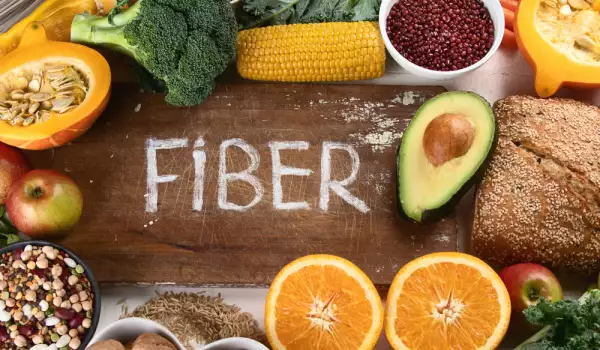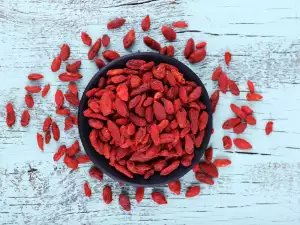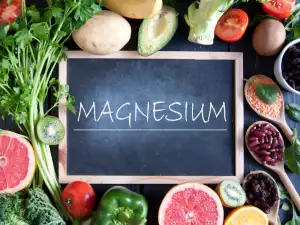Healthy eating is gaining popularity, because of the growing proportion of people who realize that some slight changes in diet can have a huge positive effect on an individual's health and general well-being. Changing eating habits is never too late and it is advisable to pay attention to the food consumed.
What does healthy eating mean?
This means a menu based on foods that are high in fiber, protein and healthy fats, probiotics, vitamins, minerals and antioxidants. Avoiding or minimizing foods containing saturated fats, trans fats, added salt and sugar should be strictly adhered to.
It is also recommended to drink enough water, have physical activity, abstain from alcohol and smoke.
What are the benefits of a healthy diet?
Food is a determining factor for overall good health and at the same time is the prerequisite, which unlocks some of the most unpleasant chronic diseases. Among the leading causes of increased mortality at an early age, such as heart disease, obesity, diabetes and others, the main reason is food combined with lifestyle.
The benefits, in turn, are innumerable. Among them are the reduced risks of developing severe chronic diseases of the heart, digestive, immune system, diseases related to brain activity, which implies a longer and better life. A good diet promotes good and optimal health. Healthy eating, combined with regular physical activity, is considered the safest and most reliable way to reduce the risk of diseases in the long run and achieve optimal weight, as well as a pleasant appearance.
How to include healthy eating in the rhythm of your life?
Not only is it not good to make drastic changes, but to take consistent steps towards a healthy diet, the following tips need to be considered:
- Preparing food at home is a necessity for healthy eating - that's how you control over the quality of food intake, as well as the way of its preparation;
- The variety and freshness of the products used is an important factor;
- Labels need to be monitored to make it clear what is in the food. Packaged and processed foods need to be forgotten about;
- It is important to monitor the general condition after eating - physical and mental discomfort after consuming a lot of calories should disappear;
- Water consumption needs to be significant - drinking more water helps cleanse waste products and toxins that cause fatigue, headaches, lack of energy and more.
Following the tips on how to approach the change of diet to healthy, comes the most important step - the choice of products and their preparation and inclusion in the daily menu.
Healthy foods to focus on

1. Foods high in fiber. Fiber is a complex carbohydrate that passes through the digestive tract almost undigested. Regular consumption of foods containing fiber has a beneficial effect on digestion. Women should intake 25 grams of fiber a day, and men 30 grams a day.
Foods rich in fiber are: whole grain bread, brown pasta, brown rice, oats, beans, lentils, fruit and vegetables.
Consumption of foods containing fiber has the following benefits: lowers levels of bad cholesterol, regulates the digestive system, improves blood sugar levels, promotes weight loss, regulates the urinary system, reduces the risk of developing type 2 diabetes, reduces the risk of colon cancer prevents obesity.
2. Whole grains. These types of food are healthy due to the vitamins, minerals, antioxidants and fiber. Of all the health benefits, the improvement of the digestive system and the reduced risk of developing heart disease should be emphasized.
Whole grains, which are good to be included on the menu are - whole grain bread, brown spaghetti, brown rice, quinoa, whole grain oatmeal.
Health benefits include improving the digestive system, regulating blood sugar levels, weight loss, reduce the risk of colon cancer.
3. Fruit. Regular consumption of fresh seasonal fruit is extremely important, because of their excellent composition. They are rich in fiber, vitamins, minerals and antioxidants. It is best to eat the fruit with the peel when possible.
The most healthy fruit are - berries, citrus fruit, avocados, bananas, apples, cherries, pomegranates, grapes.
They improve the functions of the digestive tract, increase the body's energy reserves, improve the brain functions, slow down aging, support immunity, keep skin healthy and elastic, protect against heart disease, cancer and obesity.
4. Drinking water. The human body is made up of the largest percentage of water. It is involved in all vital processes and helps the normal functioning of body tissues and organs. Good hydration plays a key role in keeping the body in shape.
Loss of even 2 percent of water leads to dehydration, which impairs bodily functions. Eight glasses of water a day or 1.5 liters is the recommended dose of water a day. The main types of drinking water are mineral, spring, table, tap, purified and artesian water.
The health benefits of water consumption include increasing the body's energy levels, supporting the digestive system, clearing the brain, slowing the aging process, regulating blood pressure, boosting immunity, reducing the risk of heart attacks and strokes.
5. Vegetables. Consumption of vegetables is one of the most important points in a healthy diet. These natural gifts are a real reservoir of healthy nutrients. Consumption of at least 3 vegetables a day is highly recommended by the World Health Organization.

The most healthy among them are green leafy vegetables, cruciferous vegetables, tomatoes, cucumbers, garlic, carrots, sweet potatoes, beetroot, ginger and others.
Health benefits consist of regulating digestion and the excretory system, increasing the body's energy, improving brain function, supporting the immune system, giving strength and elasticity to the skin, reducing the risk of various chronic illnesses.
6. Legumes. This food is not only cheap but also very healthy. It is rich in fiber, protein, vitamins and minerals. Consumption of one legume a day is recommended. The most suitable legumes are beans, lentils, peas, green beans, chickpeas, soy, peanuts.
They regulate digestion, lower bad cholesterol levels, strengthen the immune system, support beneficial bacteria and prevent the development of chronic diseases.
7. Fish. According to its nutritional composition, fish is oily and non-greasy. Oily fish contain omega-3 fatty acids, and non-oily fish contain more protein and very few calories. Consuming fish 2 times a week is a good idea.
Healthy fish include salmon, mackerel, trout, sardines, herring, tuna and from the oily cod, bream, pike and lean white fish. Fish is a very healthy food, because of the optimal tissue growth it provides. Regulates blood sugar, slows aging, promotes weight loss, improves brain function, protects against heart disease, cancer and Alzheimer's.
8. Seeds and nuts. Nuts and seeds contain vitamins, minerals, antioxidants, fiber, useful fats, proteins. It is best to eat them raw and without harmful spices. However, they are high in calories and this should be kept in mind.
The most healthy are walnuts, hazelnuts, almonds, Brazil nuts, cashews, pistachios, flaxseeds, hemp seeds, sesame seeds, sunflowers, pumpkin seeds, chia seeds.
They improve brain function, slow down aging, protect against cancer, support bones and heart.
9. Healthy fats. These include mostly omega-3 omega-6 and omega-9. Nuts, seeds, fish, avocados, olives, tahini, vegetable fats are among the foods that contain them. They support the work of the brain, lower bad cholesterol, protect the heart, slow down aging.
If all healthy foods are included in the daily menu and you do not overeat, healthy foods pay off for the body by keeping it healthy and significantly slowing down its aging.




















Comments